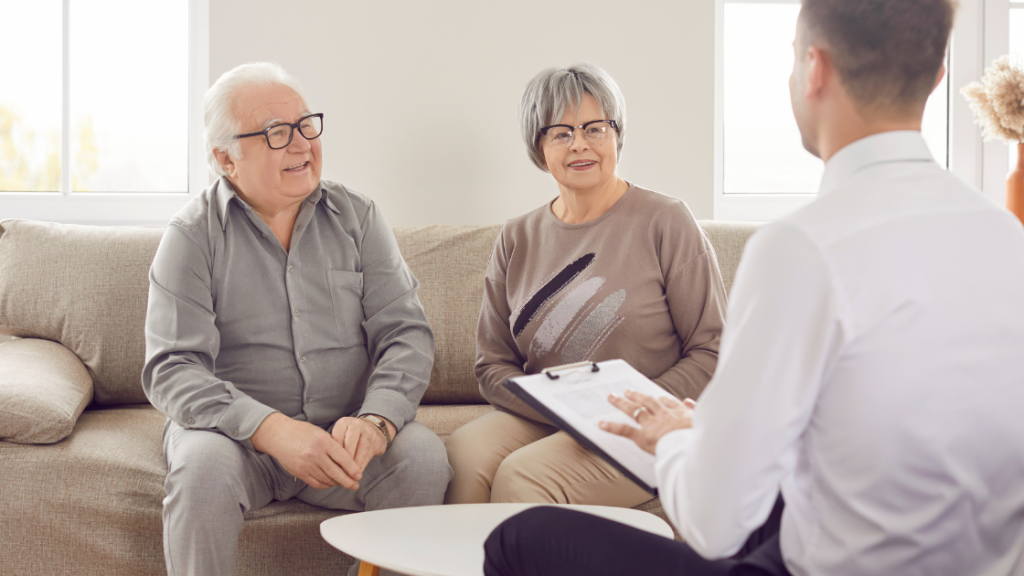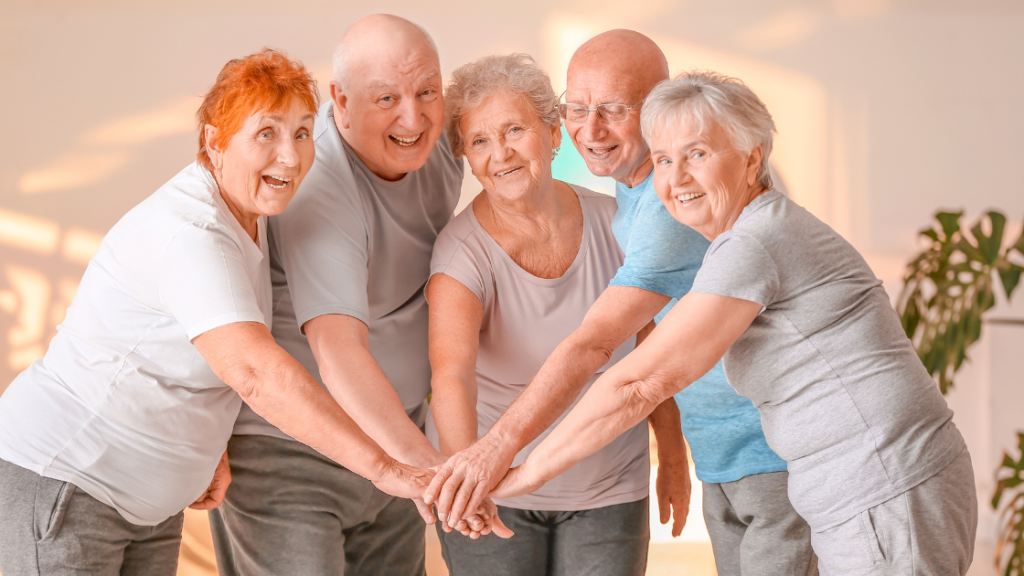As our population gets older, there’s a growing need for taking care of the elderly worldwide. With people living longer and families changing, more and more seniors need help and support. The significance of elder care basics cannot be overstated. This blog aims to assist whether you’re a family member, friend, or professional caregiver. Caring for older individuals can be daunting, but with the right information and tips, we can simplify the process and ensure our seniors receive the care they deserve. This ensures they can maintain their dignity and quality of life.

Understanding Elderly Needs
Older folks face a lot of challenges as they age. Their physical health can be a concern with issues like arthritis or trouble moving around. Mental health is important too, as conditions like dementia, geriatric depression or feeling lonely become more common. Staying independent can get harder, needing help with daily tasks, which is an essential aspect of elder care basics. And staying connected with others becomes super important for feeling happy and healthy.
Each older person is different, so it’s crucial to give them personalized care that fits their needs, a fundamental aspect of elder care basics. This might mean adjusting how we care for them to fit their health, giving emotional support, and finding ways for them to stay social.
Types of Elder Care
There are different ways to care for seniors depending on their needs:
In-Home Care: This is when caregivers come to the senior’s home to help with daily tasks. It’s great for those who want to stay in familiar surroundings.
Assisted Living Facilities: These places provide housing and support for seniors who need some help but not full-time medical care. They offer independence with help nearby.
Nursing Homes: These are for seniors who need around-the-clock medical care. They provide skilled nursing care and assistance with daily activities.
Memory Care Facilities: These specialize in caring for seniors with Alzheimer’s or dementia. They offer a safe and structured environment with specialized care.
It’s important to choose the right kind of care based on what the senior needs. Talking to healthcare professionals and visiting different places can help make the best choice.
Legal and Financial Considerations
There are some important legal and money things to think about when caring for seniors:
Legal Documents: Seniors should have a will, power of attorney, and advance directives in place to make sure their wishes are followed if they can’t make decisions. It helps prevent confusion and ensures their wishes are respected.
Financial Stuff: Long-term care insurance and Medicaid can help cover costs, but managing healthcare bills is also important. Planning ahead can ease financial stress and ensure seniors get the care they need.
Getting help from legal and financial experts can make sure everything is set up correctly and seniors are protected.
Emotional and Psychological Support
Both seniors and their caregivers need emotional support:
For Seniors: Getting older can bring up a lot of feelings, so having someone to talk to and spend time with is really important. It can help them feel valued and loved.
For Caregivers: Taking care of someone else can be tough, so finding ways to relax and get support from others is crucial. It prevents burnout and helps caregivers stay healthy.
Taking breaks, talking openly about feelings, and getting professional help when needed can make caregiving less stressful.
Safety and Home Modifications
Making the home safe is key for preventing causes:
Home Modifications: Adding things like grab bars, ramps, and good lighting can help seniors move around safely. It gives them more confidence and independence.
Fall Prevention: Removing tripping hazards, securing rugs, and wearing proper footwear can reduce the risk of falls. It prevents injuries and keeps seniors active.
Regular check-ins and making changes to the home as needed can keep seniors safe and independent.
Nutrition and Wellness
Eating well and staying active is important for seniors’ health:
Balanced Diet: Encouraging lots of fruits, veggies, whole grains, and lean proteins keeps seniors strong and healthy. It gives them energy and supports their immune system. Proper nutrition is essential for healthy aging, providing essential nutrients to maintain cognitive function, bone health, and overall well-being.
Physical Activity: Regular exercise, like walking or stretching, keeps muscles and bones strong. It improves mood and overall well-being. Exercise also promotes cardiovascular health, balance, and flexibility, reducing the risk of falls and injuries commonly associated with aging.
Tailoring meals to seniors’ tastes and abilities and making sure they stay hydrated are fundamental aspects of elder care basics. Additionally, addressing any specific dietary needs or restrictions, such as managing diabetes or hypertension, is crucial for promoting optimal health in older adults.
Socialization and Activities
Staying connected and engaged with others is great for seniors’ mental health:
Social Activities: Joining groups, going on outings, and doing hobbies with others keeps seniors happy and active. It prevents loneliness and boosts mood.
Individual Pursuits: Finding activities seniors enjoy, like reading or painting, helps them stay stimulated and fulfilled. It keeps their mind sharp and engaged.
Mixing up activities and making sure they’re enjoyable keeps things interesting for seniors.
Communication with Healthcare Professionals
Good communication with doctors and nurses is important for getting the best care:
Open Communication: Sharing information and asking questions helps healthcare providers understand seniors’ needs. It ensures they get the right treatment and support.
Advocating for Needs: Speaking up for seniors’ preferences and making sure they’re heard in medical decisions ensures they get the best care possible. It empowers seniors to make decisions about their health.
Taking notes, asking for second opinions, and staying organized with healthcare information helps caregivers stay on top of things.
Conclusion
Taking care of seniors involves a lot of different things, from keeping them safe at home to making sure they’re happy and connected. By paying attention to their needs, staying informed, and getting support when needed, caregivers can give seniors the best possible care while adhering to elder care basics.
Additional Resources
- AARP (www.aarp.org) – Provides a wealth of information, resources, and support for caregivers and older adults.
- Alzheimer’s Association (www.alz.org) – Offers educational materials, support groups, and helpline services for individuals with Alzheimer’s disease and their caregivers.
- Eldercare Locator (www.eldercare.acl.gov) – Connects older adults and caregivers with local resources and support services nationwide.
- National Council on Aging (www.ncoa.org) – Offers programs, resources, and advocacy efforts to improve the lives of older adults and their caregivers.
- Family Caregiver Alliance (www.caregiver.org) – Provides educational materials, online support groups, and caregiver resources for families caring for older adults with chronic illnesses or disabilities.
These organizations offer lots of information and support for caregivers and seniors. Checking them out can provide even more help and guidance.
Visit our LinkedIn page for the latest updates on our company, including exciting developments and new offerings. Stay informed and connected with us as we continue to grow and provide valuable learning opportunities for professionals in caregiving industries.




1 comment
Comments are closed.